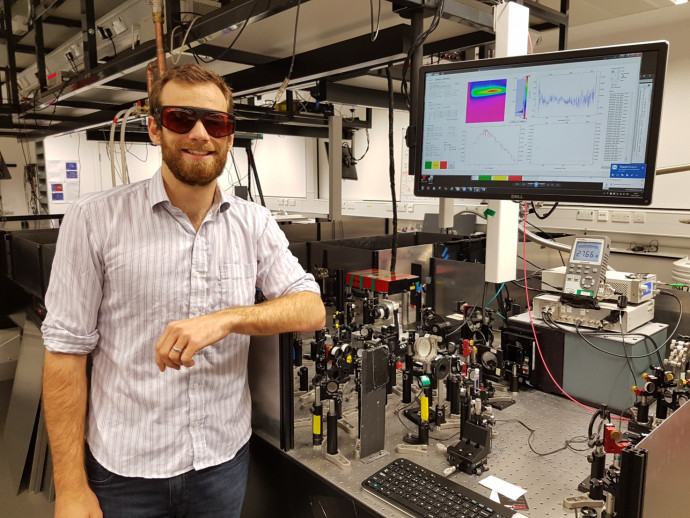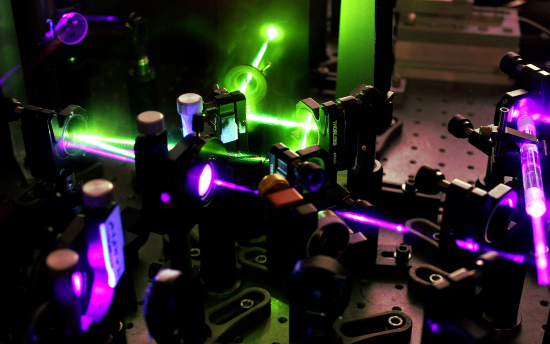Michael Price

2021: Dr Michael Price, Te Herenga Waka— Victoria University of Wellington, has been awarded a Rutherford Discovery Fellowship for research titled ‘The Physics of Next Generation Solar Panels and Light Emitters for Sustainability’
Published on 11 Whiringa-ā-rangi November 2021
Biography
Dr Michael Price obtained a Cambridge-Rutherford Memorial PhD scholarship to carry out research on the optoelectronic properties of lead halide perovskite materials at Cambridge University under Professor Richard Friend. After completing his PhD in 2015, he was a postdoctoral fellow at Cambridge University for 2 years before returning to Aotearoa as a Rutherford Foundation Postdoctoral Fellow based at Te Herenga Waka— Victoria University of Wellington. He is the co-inventor on 2 patents and his 24 published works have seen a total of over 5,000 citations to date.
His key research interests lie in better understanding the processes that occur inside semiconductor materials when light or electric current is applied to them. This understanding leads to cheaper and more efficient solar cells, light emitting electronics and lasers, and is applicable in other key areas, such as capturing carbon dioxide.
Research Summary
Global warming compels us to search for sustainable energy sources. Solar cells, which convert sunlight to electricity, are a promising way to fulfill our sustainable energy goals. Organic solar cells – made entirely of organic compounds – are particularly attractive on a mainstream scale, due to their low cost and environmental friendliness. To date, the most energetically efficient organic solar cells are made by carefully blending different types of organic compounds together. Unfortunately, the energy efficiency of organic solar cells has progressed slowly due to difficulties in controlling the blending process. To unlock the commercial potential of organic solar cells, improvements to their energy efficiency are essential.
Recently, Dr Michael Price, Dr Paul Hume, and collaborators at Victoria University of Wellington discovered the organic compound Y6 can create organic solar cells without the traditional blending techniques. By further studying the fundamental properties of Y6 and compounds of similar chemical structure, organic solar cells will reach new levels of energy efficiency, unlocking their true commercial potential.

The laser setup Dr Price uses to study the fundamental optical dynamics of organic compounds like Y6
In this Rutherford Discovery Fellowship, Dr Price will investigate the fundamental physics of Y6 and related compounds. Using insights from earlier studies, new organic solar cells and solar cell architectures will be developed. The potential of Y6 and related compounds to power organic light emitting devices will also be explored, making way for cheap and sustainable organic-based electronics. Combining theory and engineering, this project will create a new organic electronics platform. From energy generation to our household lights and TV screens, the future seems bright for Y6.
